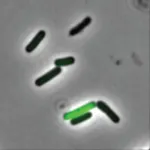(Press-News.org) AURORA, Colo. (April 3, 2023) – A study published in Frontiers in Surgery finds that people with schizophrenia (SZ) and schizoaffective disorder (SAD) have overall lower surgical risk than people with Parkinson’s disease, which is reassuring when considering potential surgical interventions such as Deep Brain Stimulation (DBS) for the treatment of SZ and SAD.
DBS, a procedure that implants electrodes in the deeper structures of the brain connected to generators in the chest, is rare in treating SZ and SAD; there are only 13 published cases. While most of these patients saw resolution of psychotic symptoms, one experienced hemorrhage and infection post-operation.
Researchers at the University of Colorado Anschutz Medical Campus sought to gauge the ethics of DBS in patients who have not responded to other treatment by comparing surgical risk to disorders such as Parkinson’s in which DBS is commonly used as treatment.
“Our goal was to assess potential surgical risk in light of potential effectiveness of DBS for SZ and SAD patients to be fully transparent with patients seeking the highest levels of treatment,” says Judith Gault, PhD, associate research professor of neurosurgery at the University of Colorado School of Medicine and corresponding author. “20% of SZ and SAD patients are treatment-refractory. It’s our responsibility to ensure these novel and advance therapeutics are available to populations who feel they have run out of options, as is our duty to ensure clinicians, patients and caregivers make informed ethical decisions when considering DBS as a new experimental treatment option.”
Researchers utilized a browser-based statistical analysis software called TriNetX Live to directly compare adverse surgical outcomes for procedures to treat SZ and SAD against Parkinson’s diseases cases. The analysis assessed over 35,000 records, from 48 U.S. states, spanning 19 years to determine postsurgical morbidity and mortality.
Results indicate that patients with SZ and SAD had lower postsurgical mortality than those with Parkinson’s, suggesting that DBS is an ethical and reasonable option for treatment-refractory SZ and SAD patients. Ultimately, candidate selection is done on a case-by-case basis with comprehensive consideration of factors relevant to DBS success.
“We were not sure what results this study would yield, so this good news brings us one step closer to having another, potentially life-changing, treatment option when all other measures have failed them,” says Rachel Davis, MD, associate professor of psychiatry at CU School of Medicine. “Neurolosurgical intervention is something that requires scrupulousness, transparency and trust at every level of the decision-making process. These results provide a foundation for moving forward with larger-scale clinical trials and potential treatment options.”
About the University of Colorado Anschutz Medical Campus
The University of Colorado Anschutz Medical Campus is a world-class medical destination at the forefront of transformative science, medicine, education and patient care. The campus encompasses the University of Colorado health professional schools, more than 60 centers and institutes, and two nationally ranked independent hospitals - UCHealth University of Colorado Hospital and Children's Hospital Colorado - that treat more than two million adult and pediatric patients each year. Innovative, interconnected and highly collaborative, the University of Colorado Anschutz Medical Campus delivers life-changing treatments, patient care and professional training and conducts world-renowned research fueled by over $690 million in research grants. For more information, visit www.cuanschutz.edu.
END
Patients with schizophrenia have favorable surgical risk, opening the door for ethical consideration of neurosurgical interventions like Deep Brain Stimulation
People with schizophrenia have lower postsurgical mortality than people with Parkinson’s disease, suggesting that it is reasonable to identify appropriate surgical candidates for DBS for SZ and SAD clinical trials
2023-04-03
ELSE PRESS RELEASES FROM THIS DATE:
A 21st-century remedy for missed meds
2023-04-03
HOUSTON – (April 3, 2023) – Missing crucial doses of medicines and vaccines could become a thing of the past thanks to Rice University bioengineers’ next-level technology for making time-released drugs.
“This is a huge problem in the treatment of chronic disease,” said Kevin McHugh, corresponding author of a study about the technology published online in Advanced Materials. “It’s estimated that 50% of people don't take their medications correctly. With this, you’d give them one shot, and they’d be all set for the next couple of months.”
When patients fail to take prescription medicine or take it incorrectly, the costs can ...
Research suggests avenues toward gene therapies for polycystic kidney disease
2023-04-03
New Haven, Conn. — Autosomal dominant polycystic kidney disease (ADPKD) is the most common potentially lethal genetic disease—about a half million people in the United States alone suffer from the condition. There is no cure, but new research could open the door to new gene therapies for treating most cases of the disease.
For several decades, researchers have known that mutations in the PKD1 gene, which encodes the polycystin-1 (PC1) protein, can cause the disease in about 80% of cases. However, the protein is too big to be modified through gene therapy strategies. Now, a research ...
New research shows that bacteria get “hangry," too
2023-04-03
Have you ever been so hungry that you become angry, otherwise known as “hangry?” New research by Adam Rosenthal, PhD, assistant professor in the Department of Microbiology and Immunology, has found that some bacteria cells get hangry too, releasing harmful toxins into our bodies and making us sick.
Rosenthal and his colleagues from Harvard, Princeton and Danisco Animal Nutrition discovered, using a recently developed technology, that genetically identical cells within a bacterial community have different functions, with some members behaving more docile and others producing the very toxins that make us feel ill.
“Bacteria behave much more ...
Mount Sinai awarded prestigious $1.3 million grant to expand research training program in skin biology
2023-04-03
The Kimberly and Eric J. Waldman Department of Dermatology at the Icahn School of Medicine at Mount Sinai will expand its research training program in skin biology with support from a five-year, $1.3 million T32 grant from the National Institutes of Health (NIH) and the National Institute of Arthritis and Musculoskeletal and Skin Diseases (NIAMS).
The research training program in Systems Skin Biology will take a multidisciplinary approach in teaching scientists to holistically understand human physiology, health, and disease. As a recognized leader in research for skin biology and skin diseases, Mount Sinai will also become an incubator for future ...
MU grant will help ease nursing workforce shortage
2023-04-03
COLUMBIA, Mo. -- A recent grant from the Missouri Department of Economic Development will help train hundreds of MU students to become part-time nurse assistants at MU Health Care.
The three-year grant, which starts in fall 2023, will create a three-credit hour elective course within the MU Sinclair School of Nursing. The class will help nearly 100 MU students each year earn paid, part-time positions within MU Health Care as nurse assistants, also known as unlicensed assistive personnel (UAPs), certified nurse assistants (CNAs) and patient care technicians.
“We currently have nearly 800 pre-nursing undergraduate students at MU, and as a professor teaching a freshmen-level course, I ...
Yale-led team creates comprehensive resource for impact of genomic variants
2023-04-03
New Haven, Conn. — Each person has about 4 million sequence differences in their genome relative to the reference human genome. These differences are known as variants. A central goal in precision medicine is understanding which of these variants contribute to disease in a particular patient. Therefore, much of the human genome annotation effort is devoted to developing resources to help interpret the relative contribution of human variants to different observable phenotypes – i.e., determining variant impact.
Recently, Yale School of Medicine led a large NIH-sponsored study where multiple institutions and international collaborators came together ...
Illegal trade and poor regulation threaten pangolins in China
2023-04-03
Pangolins, unique scale-covered mammals, are drastically declining in numbers across Asia and Africa, largely due to illegal trade. Part of the trade, both legal and illegal, supports the traditional Chinese medicine market, which has attracted conservation attention. The level of demand for pangolins and other animals in traditional Chinese medicine, however, hasn’t been thoroughly studied.
In a new study published in the journal Nature Conservation, Dr Yifu Wang, currently a postdoc researcher at the University ...
DELLA proteins could hold key to the next Green Revolution
2023-04-03
A family of ‘promiscuous’ proteins found in all land plants is responsible for many different plant functions, despite remaining relatively unchanged for over 450 million years.
New findings, published in Nature Plants and New Phytologist reveal new knowledge about how DELLA proteins regulate how much a plant grows, when germination occurs and how plants deals with threats such as drought and disease. The key is not in DELLA proteins’ ability to mutate over time, but instead in their ability to interact with dozens of different transcription factors, the proteins responsible for decoding DNA.
Understanding the mechanisms which underpin ...
Rising temperatures alter ‘missing link’ of microbial processes, putting northern peatlands at risk
2023-04-03
If you’re an avid gardener, you may have considered peat moss — decomposed Sphagnum moss that helps retain moisture in soil — to enhance your home soil mixture. And while the potting medium can help plants thrive, it’s also a key component of peatlands: wetlands characterized by a thick layer of water-saturated, carbon-rich peat beneath living Sphagnum moss, trees, and other plant life.
These ecosystems cover just 3% of Earth’s land area, but “peatlands store over one-third of all soil carbon on the planet,” explains Joel Kostka, professor and associate chair of Research in the School of Biological ...
Maclean studying paid sick leave mandates & mental health care service use
2023-04-03
Catherine Maclean, Associate Professor, Schar School of Policy and Government, received $641,155 from the National Institutes of Health for: "Paid Sick Leave Mandates and Mental Healthcare Service Use."
This project will provide the first causal estimates of the effect of state and local paid sick leave (PSL) mandates on access to PSL among those with mental health disorder(s), use of mental health care, and indicators of potential quality of mental health care received. It will also examine how community-level factors (e.g., mental health ...
LAST 30 PRESS RELEASES:
Natural selection operates on multiple levels, comprehensive review of scientific studies shows
Developing a national research program on liquid metals for fusion
AI-powered ECG could help guide lifelong heart monitoring for patients with repaired tetralogy of fallot
Global shark bites return to average in 2025, with a smaller proportion in the United States
Millions are unaware of heart risks that don’t start in the heart
What freezing plants in blocks of ice can tell us about the future of Svalbard’s plant communities
A new vascularized tissueoid-on-a-chip model for liver regeneration and transplant rejection
Augmented reality menus may help restaurants attract more customers, improve brand perceptions
Power grids to epidemics: study shows small patterns trigger systemic failures
Computational insights into the interactions of andrographolide derivative SRJ09 with histone deacetylase for the management of beta thalassemia
A genetic brake that forms our muscles
CHEST announces first class of certified critical care advanced practice providers awarded CCAPP Designation
Jeonbuk National University researchers develop an innovative prussian-blue based electrode for effective and efficient cesium removal
Self-organization of cell-sized chiral rotating actin rings driven by a chiral myosin
Report: US history polarizes generations, but has potential to unite
Tiny bubbles, big breakthrough: Cracking cancer’s “fortress”
A biological material that becomes stronger when wet could replace plastics
Glacial feast: Seals caught closer to glaciers had fuller stomachs
Get the picture? High-tech, low-cost lens focuses on global consumer markets
Antimicrobial resistance in foodborne bacteria remains a public health concern in Europe
Safer batteries for storing energy at massive scale
How can you rescue a “kidnapped” robot? A new AI system helps the robot regain its sense of location in dynamic, ever-changing environments
Brainwaves of mothers and children synchronize when playing together – even in an acquired language
A holiday to better recovery
Cal Poly’s fifth Climate Solutions Now conference to take place Feb. 23-27
Mask-wearing during COVID-19 linked to reduced air pollution–triggered heart attack risk in Japan
Achieving cross-coupling reactions of fatty amide reduction radicals via iridium-photorelay catalysis and other strategies
Shorter may be sweeter: Study finds 15-second health ads can curb junk food cravings
Family relationships identified in Stone Age graves on Gotland
Effectiveness of exercise to ease osteoarthritis symptoms likely minimal and transient
[Press-News.org] Patients with schizophrenia have favorable surgical risk, opening the door for ethical consideration of neurosurgical interventions like Deep Brain StimulationPeople with schizophrenia have lower postsurgical mortality than people with Parkinson’s disease, suggesting that it is reasonable to identify appropriate surgical candidates for DBS for SZ and SAD clinical trials




